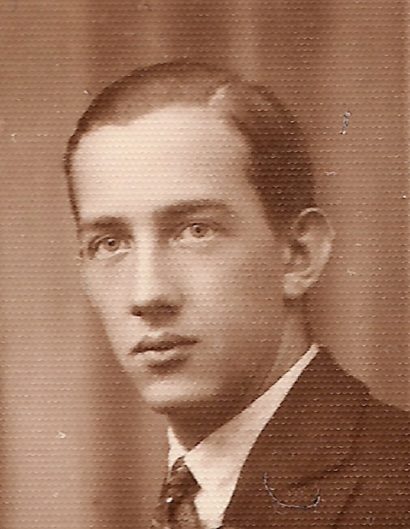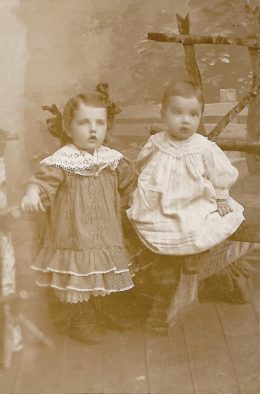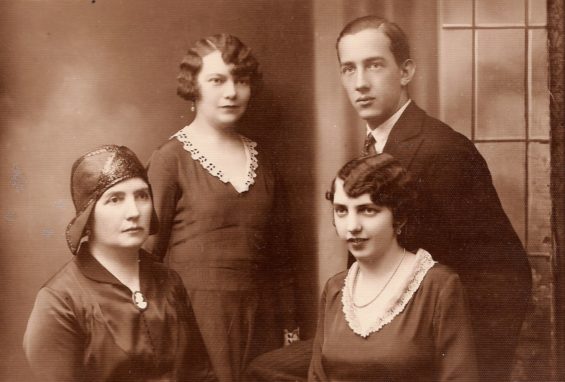Roman Fudziński
born July 18, 1910
![]()
Roman Fudzin´ski (detail), Radom, July 1930 (private collection)
Pamphlets Against the Occupation
and his older sister were born in the town of Lünen in Westfalia. His father, who came from the town of Gnesen in the Prussian province of Posen, was a postal worker in Dortmund. After Roman’s father died, the family returned to Gnesen. Roman Fudzin´ski studied to become a teacher in Gnesen, which had been renamed Gniezno after becoming part of the Republic of Poland in 1920. In the 1930s, Roman Fudzin´ski moved to Radom to live with his uncle Wojciech Rembikowski, who owned a pastry shop. In late 1936, Roman Fudzin´ski married Wojciech Rembikowski’s daughter, Józefa. Their daughter was born three years later.
![]()
Roman Fudzin´ski(right), with his sister Eleonora, Lünen 1912 (private collection)
![]()
Roman Fudzin´skiwith his later wife Józefa (standing) and his mother and sister (seated), Radom, July 1930 (private collection)
During the war, the Rembikowski-Fudzin´ski family worked for the underground resistance movement against the German occupation. One of the activities of the underground movement was distributing pamphlets for the Home Army. In early 1944, the Gestapo arrested the entire family and the staff of the pastry shop. Wojciech Rembikowski and his brother Ignaz were shot. The SS deported Józefa to the Buchenwald concentration camp. Roman was brought by the Security Service to the Groß-Rosen concentration camp in mid-June 1944 and deported to Flossenbürg two weeks later. In Flossenbürg, he was put to work as an unskilled laborer and assigned to sleep in Block 7. Roman Fudzin´ski remained at Flossenbürg until the liberation of the camp on April 23, 1945.
At the end of the war, Roman Fudzin´ski did not return to Poland. He first lived in Schweinfurt, and then emigrated to the United States in the 1950s. He lived in Milwaukee, Wisconsin, and worked as a locksmith. He married a second time and had two more children. Roman Fudzin´ski died in February 1983.


